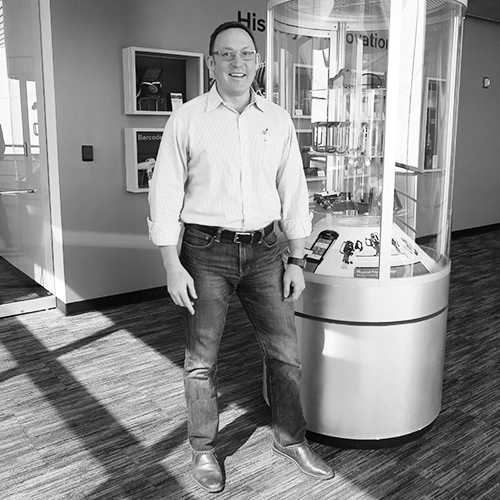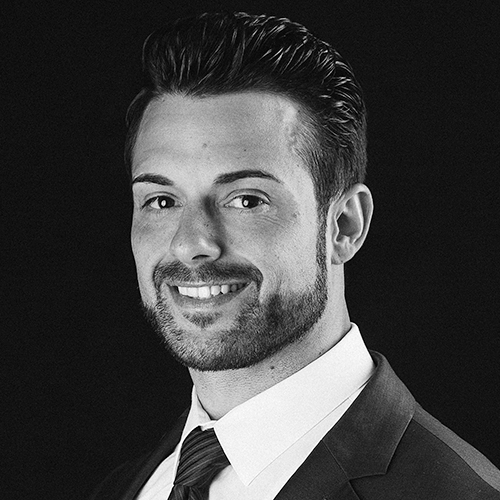John Murray realizes that his professional reboot from lawyer to HR executive—as far as it has already come—is not quite complete. “I had been practicing law for twenty-five years, and I enjoyed it,” Murray says. Nevertheless, he has found his new role as corporate vice president of human resources at The Marcus Corporation to be thoroughly enjoyable as well.
As a lawyer, Murray loved opportunities to work with clients to understand their business and to explore ways to help them avoid problems. “But that was harder to do when you’re an outside attorney and billing by the hour,” he says. “My clients were always sensitive to the meter running.” So, instead, Murray started his own meter. “I began to seek opportunities to get more involved on the front end, rather than just problem solving,” he says. “The longer you practice, the more you start to understand and identify with your client’s business needs. You enjoy getting involved in making the business better.”
However, the transition from outside counsel to HR hasn’t always been easy. Murray recently completed his annual performance review for The Marcus Corporation. In the self-assessment portion, he candidly addressed this very fact. “I have yet to complete my detox from private practice. I see I still have a little bit of a hangover I need to recover from,” Murray says, chuckling.
He can laugh because he knows he made the right call when he joined Marcus, a Milwaukee-based company that specializes in lodging and entertainment, after a long stint as a corporate attorney. He was able to get a taste of this while serving as Marcus’s outside labor/employment counsel for several years. He also had an opportunity to spend one day a week on-site for six or seven months before Marcus approached him about joining the company. That experience gave Murray a chance to get to know the company and people from a position that might not be possible as an outside attorney.
“I began to seek opportunities to get more involved on the front end, rather than just problem solving. The longer you practice, the more you start to understand and identify with your client’s business needs. You enjoy getting involved in making the business better.”
As a lawyer, Murray specialized in labor and employment law. In his current role, Murray has been able to leverage some of the skills and experience he gained as an attorney in areas such as union negotiations and the resolution of discrimination claims. “As an outside counsel, you’re concerned with avoiding liability on the front end and consulting and advising,” he says. “That certainly continues in my human resources role here.”
But there are some differences. Working in HR, Murray’s goals are broader. He not only focuses on legal compliance issues, but also cultural ones, like what’s good for employees and the organization regardless of the extent to which it minimizes legal exposure. He’s also more involved in cost-benefit analysis, which balances the organization’s financial goals with goals of retention and recruitment.
Murray has also had to think more proactively as vice president of HR than he did as a lawyer. “When you’re outside counsel, people don’t call you until there’s a problem and you have to move quickly to solve it,” he says. “In an HR role, often your role is to identify where problems might arise and to look at strategies at play on the front end. You’re involved earlier, and the process is a lot more collaborative, more deliberate.”
Even though this process can be more methodical, it seems to suit Murray perfectly. He took a personality analysis as part of the application process for The Marcus Corporation, which he says was revealing. “I learned I’m naturally more collaborative and a consensus builder,” Murray explains.
But that doesn’t mean he can’t be a bulldog as well. “Obviously, I could go the other route and be more of a litigator and duke it out as a lawyer, but my HR role seems to mesh better with my natural tendencies,” he says.
After almost a year in his HR role, Murray is starting to see that his responsibilities offer him the chance to tap his analytical and persuasive skills differently than he did as a lawyer. For instance, he now tries to understand how decisions will benefit both the organization and the company’s associates.
Murray believes his experience as a lawyer positively influences his decision-making process as an HR professional. “I still tend to look at new compliance and HR issues from the standpoint of minimizing exposure,” he says. But that’s no longer where he stops. “I then look more broadly and say, ‘If we need to comply in this one area, what does that extrapolate out to in other states with different laws? Or operationally, what do we try to accomplish?’”
One thing he’s certainly accomplished is paying less attention to the clock. “I still remember—after being here a couple weeks—I didn’t know what time it was,” Murray says. “When you’re an outside attorney, you know what time it is all the time. Now, I’m in meetings that are important, collaborative, and productive rather than a waste of time. I also enjoy immersing myself in projects without keeping one eye on the clock. It is nice that I no longer need part of my brain constantly looking at how much time this is taking.”

